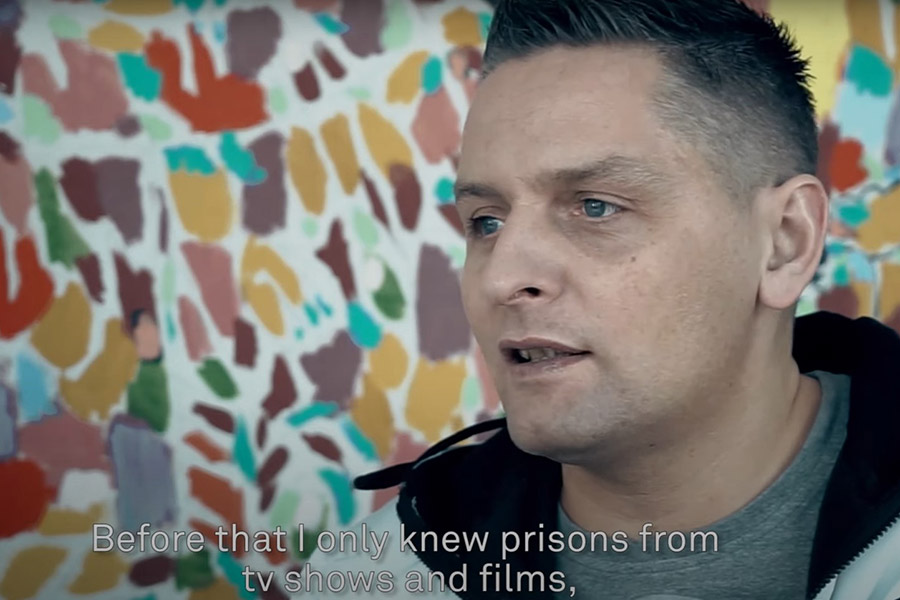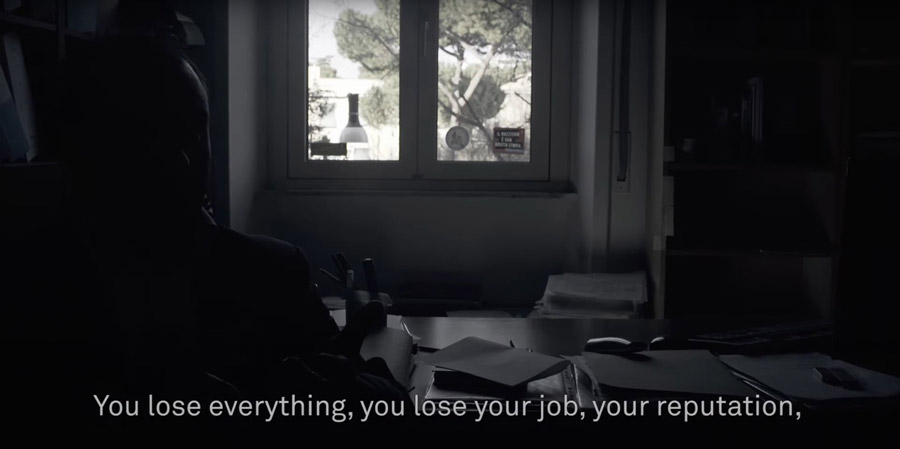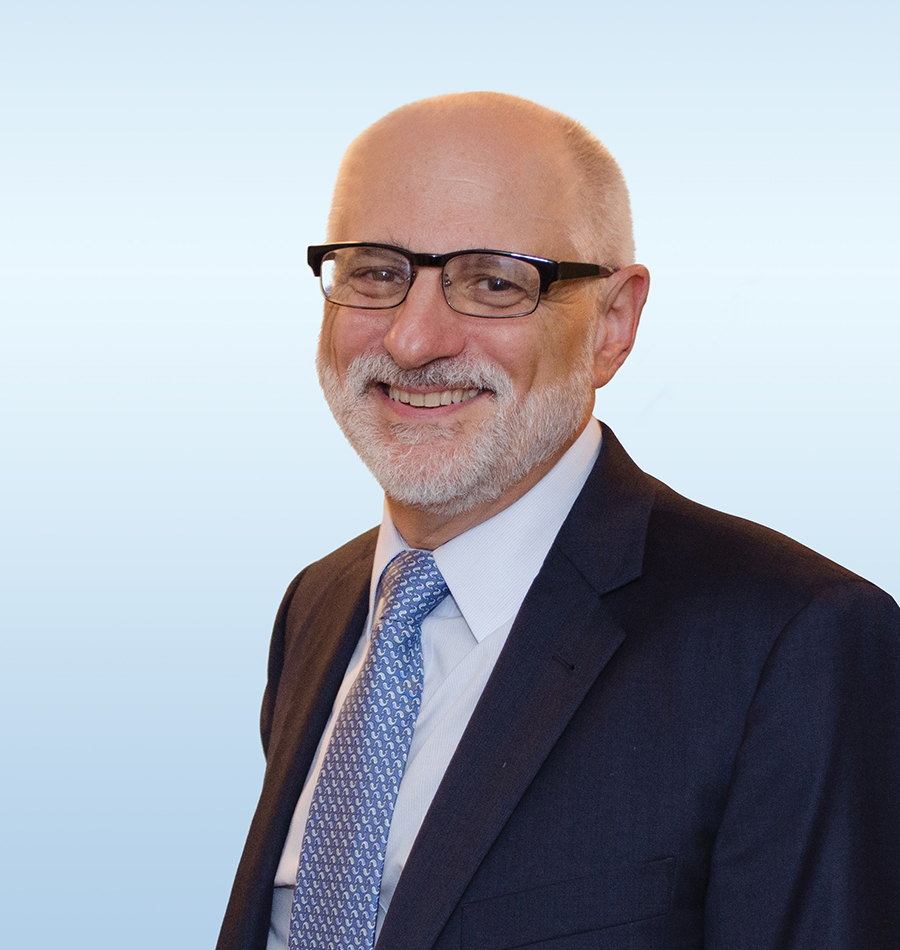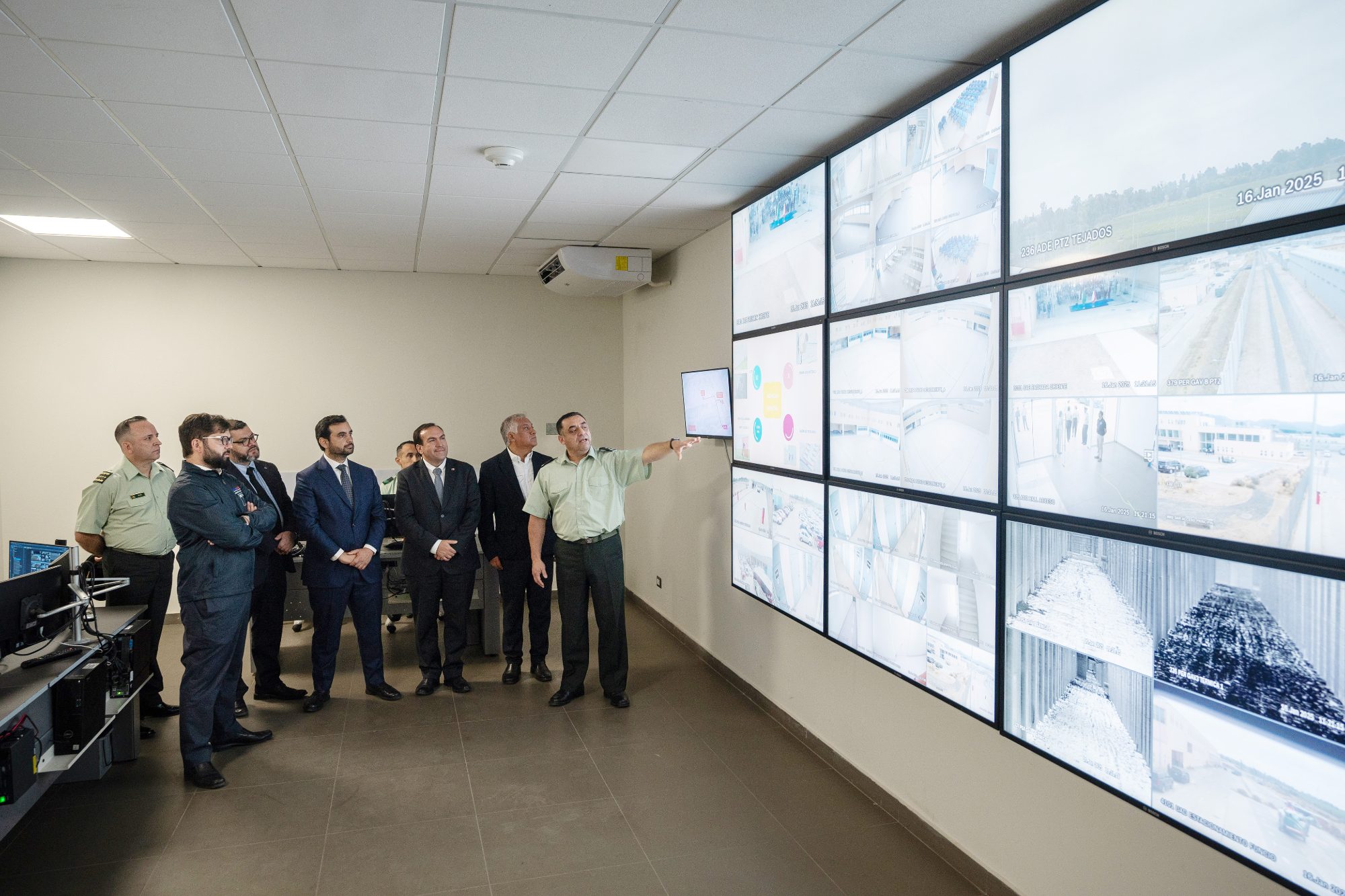Interview
Norman L. Reimer
Global CEO, Fair Trials
Fair Trials is a global criminal justice watchdog, an NGO campaigning for fairness, equality, and justice. Its team of independent experts exposes threats to justice through original research and identifies practical changes to fix them.
The NGO campaigns to change policies, support strategic litigation, reform policy and develop international standards and best practices. The organisation supports local movements for justice reform and builds partnerships with lawyers, activists, academics and other NGOs.
In the field of pretrial detention Fair Trials is actively campaigning for the application of this measure as a last resort and for people who are accused of a crime to be detained for the shortest time possible.
JT: Fair Trials has a history of 30 years of fighting against systemic injustice in criminal processes.
How and why does Fair Trials arise? And how have the challenges facing the mission of the organisation evolved over time?
NR: Fair Trials was founded to help UK citizens facing abusive criminal proceedings in other countries. But it has grown over the years to be a global voice for criminal justice reform. With offices in Brussels, London, the UK and an emerging presence in Latin America, Fair Trials brings a unique comparative lens to criminal justice reform.
While virtually all criminal legal systems are flawed in some ways, systems in one country or region offer rights, protections and protocols that can improve systems in other countries or regions. The capacity to promote reform is immeasurably enhanced when a problem can be analysed with a fresh perspective.
Three key factors have contributed significantly to the evolution of Fair Trials’ work. First, there has been an unprecedented global embrace of criminalization and prosecution as the first-choice policy fix to address all manner of disfavoured personal, social, and economic conduct.
Acting under the illusion that every social ill can be solved by either enacting new crimes or increasing penalties for existing crimes has led to one of the greatest public policy failures of all time. At great economic and social cost, societies have squandered precious resources, ruined individual lives, broken families, and destroyed communities.
The hammer of a criminal prosecution, all too often accompanied by pretrial detention and the eventual imposition of a jail sentence, is the most inhumane and least effective means of dealing with challenges that should be dealt with through other means, such as medical or mental health care, education, poverty alleviation, and housing.
Addressing overcriminalization, over incarceration, and government overreach are now key objectives for Fair Trials.
Second, excessive criminalization and pretrial detention have led to overloaded legal systems. The response has been to resort to expedited procedures, including various trial waiver mechanisms and plea bargaining. This results in assembly line justice, in which even innocent people are induced to waive valuable rights, such as the right to challenge unlawful evidence or mount a defense. These waivers undermine critical judicial oversight of law enforcement conduct. Fair Trials campaigns to expose the flaws in these expedited procedures and works to restore basic trial rights.
Third, the criminal process is an engine of oppression for racialized and other marginalised communities. Disparate treatment is a hallmark of most systems in most countries, and it is evident in every aspect and every phase of the system.
People from racialized and marginalized communities are more likely to be subject to a police stop, to be held pretrial, to be subject to coercive plea practices, to be found guilty, and to receive more severe sentences.
Across our advocacy, Fair Trials seeks to identify, expose, and remediate the practices, policies, and procedures that causes disparate treatment and perpetuate racism or discrimination of any kind.

Acting under the illusion that every social ill can be solved by either enacting new crimes or increasing penalties for existing crimes has led to one of the greatest public policy failures of all time.
JT: One of Fair Trials’ flag campaigns is to raise awareness of the high rates of pretrial detainees, and the implications of restraining the rights to liberty and presumption of innocence.
What has been the focus of your action regarding this issue? How far are we from the widespread implementation of pretrial detention only as a last resort?
NR: As Fair Trials’ 2016 report A Measure of Last Resort? The practice of pretrial detention decision-making in the EU showed, pretrial detention is used routinely in countries across Europe and contributes to the long-standing crisis in Europe’s prisons.
This continues to be a huge problem throughout the EU. Research that Fair Trials published last year (2021) showed that in 2020, pretrial detention rates rose across EU Member States, despite the serious health risks created by detaining people during the COVID-19 pandemic. This is not only contributing to overcrowding and the deterioration in prison conditions but is also undermining the rule of law across the region.
Fair Trials has responded with a comprehensive roadmap, outlining the actions the EU must take to address this crisis.
In the UK, Fair Trials has exposed that thousands of people were being held in pretrial detention for years as a result of long-term funding cuts that were exacerbated by the pandemic.
In a report, Locked up on lockdown – life on remand during the pandemic, we published over 20 profiles of people held on remand in England and Wales. Each is a heartbreaking tale of deprivation and inhumanity inflicted upon a presumptively innocent person.
One described the conditions they faced: “Half an hour’s exercise on a filthy yard filled with food waste, general waste, urine and faeces thrown from people’s windows. Rats and pigeons’ infestations. Ten minutes to shower but not always everyday and runs alongside exercise time so you have to choose whether to clean your cell, shower or exercise.”
The hammer of a criminal prosecution, all too often accompanied by pretrial detention and the eventual imposition of a jail sentence, is the most inhumane and least effective means of dealing with challenges that should be dealt with through other means, such as medical or mental health care, education, poverty alleviation, and housing.
JT: Fair Trials has previously discussed the lack of adoption of alternative measures to the European Arrest Warrant (EAW). There are European rulings such as Framework Decision 2009/829/JHA that seek to enhance cooperation and mutual recognition to facilitate alternatives to provisional detention.
What is Fair Trials’ relation to directives and recommendations that entities such as the European Commission or the Council of Europe issue regarding pretrial detention?
NR: Fair Trials was instrumental in the creation of six Directives which have placed procedural rights as directly enforceable laws in every EU member state. They cover interpretation and translation; the right to information; access to a lawyer; the presumption of innocence; children’s rights; and legal aid. These rights are in principle instrumental in helping accused people prepare their defence, and in opposing decisions to detain them before trial.
Because each of these Directives focuses, at least in part, on procedural protections during the pretrial period, they have the potential to improve the administration of pretrial detention and constrain its excessive use. However, the Presumption of Innocence Directive, while noting the ‘clear link’ between the presumption of innocence and the right to pretrial liberty, explicitly excludes pretrial detention from its scope, on the basis that the topic was dealt with by other initiatives.
Fair Trials works with LEAP network to monitor implementation of these directives, and actively documents and shares with EU stakeholders the gaps between the law and the practice, which result in people not having access to these rights, or the rights being deprived of substance.
We have developed a Pretrial Detention Roadmap, which provides a framework for strong defence rights in Europe, but evidence shows disparities in who fully realises these EU-granted procedural rights.
Far too often, racialised and ethnic people are denied their rights because of structural racism. They are denied access to a lawyer, or receive poor quality representation. For example, in Bulgaria, researchers found evidence that Roma taken into custody were not able to contact a lawyer while in police custody, despite their right to counsel under EU law. In Hungary, a study found that Roma are more likely to rely on defence counsel appointed by the investigating authorities. The research showed how appointed lawyers are usually underpaid and therefore provide a low quality of counsel. Both studies suggest that people’s EU-granted rights are not fully being realised as they either have no access or poor quality access to counsel.
The rise in incarceration rates shows that procedural rights alone cannot prevent pretrial detention, and our focus must be on reducing recourse to criminalisation in the first place.
Fair Trials supports a complete prohibition on the use of artificial intelligence and automated decisionmaking to profile, predict, or assess any likelihood of future criminal behaviour.

JT: Fair Trials is creating an index that compares different countries’ criminal justice systems on their fairness and compliance with international human rights standards.
What are the goals of this Index? What role can this instrument play when put in practice?
NR: There is plenty of evidence that criminal justice systems around the world are broken. But we do not know and cannot be sure how to fix these broken systems without data – metrics that show exactly how criminal legal processes operate. What rights are respected? Which ones are ignored? When does an accused person get access to a lawyer?
Does the lawyer have the time and resources to effectively represent the client? Who gets held in pretrial detention and for how long? Who gets released? What sentence was offered before a trial and how does that compare to the sentence imposed after a trial? For too long criminal justice systems operated in a data free cloud of obfuscation.
The Index Project is designed to address this knowledge gap and bring transparency to criminal justice. The goal is to benchmark criminal legal systems so there is public awareness of systemic injustice and an objective basis to promote reform. Indeed, it may very well be the case that there may be a lack of data. But even documenting that gap is vital to promote reform. A lack of data confirms the lack of transparency.
And where there is no transparency there is no accountability. In other industries where human lives are at risk, such as health care or transportation, data is a given.
Creating an international Fair Trials Index offers the hope of creating a scoreboard to measure the performance of criminal justice systems in terms of their adherence to international human rights standards. The project has the potential to revolutionise the way we evaluate how these systems operate and can inform how we go about seeking to reform them.
JT: Fair Trials is vocal in condemning predictive and profiling AI systems in law enforcement and criminal justice. The organisation is part of a joint Civil Society statement calling on the EU to prohibit these AI systems.
What underlies your reservations about using artificial intelligence in the field of criminal justice? And what are your recommendations for data-driven predictions, profiling, and risk assessments?
NR: Fair Trials opposes the use of artificial intelligence (AI) and automated decision-making (ADM) for two fundamental reasons.
Firstly, decisions that can fundamentally change a human life should be made by human beings. Second, research has confirmed that AI and ADM systems reinforce discrimination and perpetuate preexisting biases against groups that have historically been overpoliced and disproportionately detained and imprisoned.
There must be strict legal safeguards governing other uses of AI in criminal justice and transparency about how it is designed, what data it uses and how it is processed. Anyone whose lives may be impacted by AI or ADM must have the ability to understand, scrutinize, and challenge their use and impartial courts must be able assess that impact.
Fair Trials supports a complete prohibition on the use of AI and ADM to profile, predict, or assess any likelihood of future criminal behaviour.
We have called for such a ban to be included in the Artificial Intelligence Act, that is currently being debated by the European Parliament.
What are the emerging challenges in global criminal justice? And to what extent can Fair Trials support addressing them?
NR: Well, certainly the use of AI is an emerging challenge. Second, a perennial challenge is to confront, expose, and eliminate both systemic racism and implicit bias. Society can no longer tolerate the use of the criminal law as a mechanism to perpetuate the oppression of whole classes of people.
More generally, we must shrink criminal justice systems. We need to overcome the addiction to criminal prosecution as a means of seeking to regulate behaviour. Many, not all, but many of the worst aspects of global criminal justice systems can be ameliorated if the system were not so overloaded with arrests and prosecutions that are completely unnecessary to address the perceived problem. Beyond that, even in those relatively few cases that constitute classic crime, such as stealing or physically injuring another person, Fair Trials supports reforms that wherever possible substitute repair and restorative justice for prosecution and punishment.
These are all daunting objectives. They will not come easily or without struggle. But criminal justice reform is not a sprint, it’s a marathon. It is, however, a race worth running.
Norman L. Reimer
Global CEO, Fair Trials
Norman L. Reimer is the Global CEO of Fair Trials. Before joining Fair Trials, he was the Executive Director of the National Association of Criminal Defense Lawyers, the preeminent organisation in the US dedicated to enhancing the capacity of the criminal defense bar to safeguard fundamental rights and promote reforms in the furthering of a fair, rational, humane, and non-discriminatory criminal legal system. Prior to that, Norman Reimer spent the first two decades of his career proudly serving as a defence lawyer representing clients of every background and station in life.


